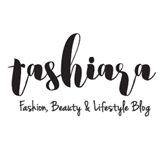Hyaluronic acid & retinol: Do they work?

When it comes to skincare, few ingredients are as well-known and widely used as Hyaluronic Acid and Retinol. Both are considered essentials in the world of anti-ageing and skincare, but they serve entirely different purposes. Are they effective on their own? Can they work together? And how do you decide which one to prioritise? Let’s explore the benefits, differences, and how to use them effectively.
What is Hyaluronic Acid?
Hyaluronic Acid (HA) is a naturally occurring molecule in the skin, known for its remarkable ability to retain water up to 1,000 times its weight. This makes it a hydration powerhouse.
Benefits of Hyaluronic Acid:
- Deep Hydration: Binds water to the skin, keeping it hydrated and plump.
- Improved Elasticity: Boosts skin’s natural elasticity for a firmer appearance.
- Soothes Dryness: Relieves tightness and flakiness in dry or dehydrated skin.
- Works for All Skin Types: Lightweight and non-comedogenic, suitable even for sensitive or acne-prone skin.
- Enhances Barrier Function: Strengthens the skin’s natural protective barrier.
What is Retinol?
Retinol, a derivative of Vitamin A, is one of the most researched and proven ingredients in skincare. It’s known for its ability to speed up cell turnover and promote collagen production, tackling a variety of skin concerns.
Benefits of Retinol:
- Anti-Ageing: Reduces fine lines and wrinkles by stimulating collagen production.
- Brightens Skin Tone: Improves skin texture and reduces hyperpigmentation.
- Clears Acne: Unclogs pores and prevents breakouts.
- Boosts Cell Turnover: Encourages new cell growth for smoother, younger-looking skin.
Hyaluronic Acid vs. Retinol: A Comparison
| Aspect | Hyaluronic Acid | Retinol |
|---|---|---|
| Function | Hydration and moisture retention | Cell turnover, collagen production, anti-ageing |
| Skin Type Suitability | All skin types, including sensitive | Best for normal to oily, acne-prone, and mature skin |
| Key Benefits | Plumps skin, soothes dryness, boosts hydration | Reduces wrinkles, clears acne, evens out skin tone |
| Usage Frequency | Can be used daily, AM and PM | Start 2-3 times a week, increasing as tolerated |
| Side Effects | Minimal to none | Dryness, redness, peeling (during adjustment phase) |
| Sun Sensitivity | No increased sun sensitivity | Increases sun sensitivity; sunscreen is a must |
Can Hyaluronic Acid and Retinol Work Together?
Yes, they complement each other beautifully! While Retinol is effective at addressing wrinkles, acne, and hyperpigmentation, it can cause dryness or irritation. Hyaluronic Acid counteracts these side effects by replenishing moisture and soothing the skin.
How to Combine Them:
-
Night Routine:
- Apply Retinol to clean, dry skin.
- Follow with a Hyaluronic Acid serum to lock in hydration and minimise dryness.
-
Patch Test First:
- If you’re new to Retinol, start with a lower concentration (0.25–0.5%) and gradually increase usage.
Who Should Use Hyaluronic Acid?
- Dry Skin: Keeps skin hydrated and prevents flakiness.
- Sensitive Skin: Gentle and non-irritating, perfect for reactive skin.
- All Ages: Hydration benefits everyone, regardless of age.
Who Should Use Retinol?
- Mature Skin: Reduces fine lines and wrinkles for a youthful appearance.
- Acne-Prone Skin: Unclogs pores and prevents breakouts.
- Uneven Skin Tone: Fades dark spots and improves texture.
Common Myths
-
Myth: Hyaluronic Acid can over-hydrate the skin.
Fact: HA works by attracting moisture; it cannot cause over-hydration but requires a good moisturiser to seal it in. -
Myth: Retinol thins the skin.
Fact: Retinol initially exfoliates, but long-term use thickens the dermis by boosting collagen.
Tips for Best Results
- Always Use Sunscreen: Retinol increases sun sensitivity; apply SPF 30+ daily.
- Hydrate Before Retinol: Prep your skin with Hyaluronic Acid for better tolerance.
- Be Patient: Retinol results take 8–12 weeks to become noticeable.
Conclusion
Hyaluronic Acid and Retinol are two skincare superstars, each addressing specific concerns. If hydration and plumping are your goals, Hyaluronic Acid is your best friend. For anti-ageing and acne concerns, Retinol is a powerful solution. Together, they create a balanced routine that targets multiple skin issues effectively. With proper usage, these ingredients can transform your skin for the better.











